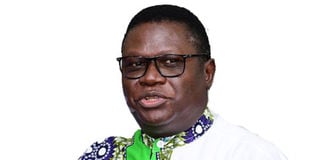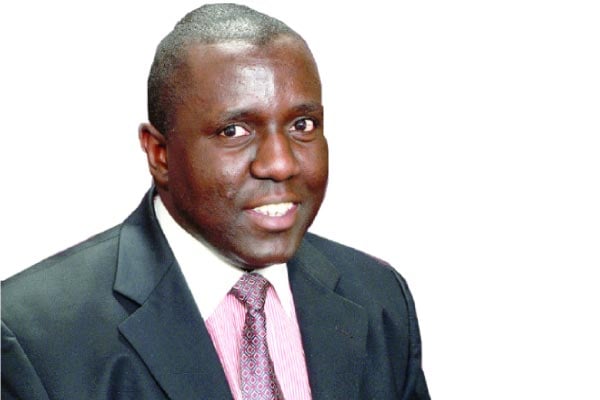Political parties poke holes in Mao’s Constitutional Amendment Bill 2024

Justice and Constintuional Affairs Minister Norbert Mao
What you need to know:
- Uganda has been rushed into many things. In 2005, we rushed from movement system to multiparty system without functional political parties and its the same thing in Mao’s constitutional amendment,” Mr Henry Muguzi.
Political parties have poked holes in the Minister for Justice and Constitutional Affairs' Constitutional Amendment Bill 2024 which seeks for a shift from presidentialism to parliamentarism saying that it takes away the power of determining the presidency from the wider majority to a small college.
By press time Mr Nobert Mao was expected to table the constitutional Amendment Bill 2024 in parliament. In this, it is expected the amendment may touch reforms on electoral matters or rationalization.
Speaking to Monitor on September 24, Forum for Democratic Change Deputy Secretary General, Mr Harrold Kaijja, said that Mr Mao has failed his own examination, because he told the nation that he was joining the government to procure a transition.
“We can only listen to anything but a transition and that is a big trial of the highest level for him to promise to procure a transition and now is talking about an election of president to create a monarchy in this country,” he said.
Mr Kaija said that history will judge Mr Mao very unfairly because he failed to deliver on his promised in a parlaientary system where money influences key decisions and direction taken in passing bills.
“It is betrayal and because we do not have citizens, Ugandans would be at parliament rioting but they are watching,” he said.
National Unity Platform Deputy Spokesperson, Mr Alex Waiswa said that it is unfortunate that those who carried the light of hope are now moving with the shadow of darkness.
“If you met Mr Mao ten years ago you would have thought that Uganda would be a lie to a human. They are all along working for longevity of the system and that has been their interest always,” he said.
However, the Uganda People’s Congress Party Secretary General (UPC), Mr Fred Ebil said that as a party they plan to come up with their position during the bill process.
“After tabling the matter it will be taken to the committee and we shall be invited to give our opinion in parliament ,” he said.
The president of National Economic Empowerment Dialogue (NEED), Mr Joseph Baluleta said that Mr Mao’s proposal could be considered for a national referendum if at all but the purpose of the bill is skewed towards continually taking power away from the people.
“We all know that one of the highest moments of our political calendar has been elections that happen every after five years and those elections are just for members of parliament and after that there is no interest ,” he said.
He added;
“I want to make this clear that they are not suggesting what they call parliamentary system which applies in so many countries but they are pushing something totally different. What they are saying is parliament [should] actually elect[s] the president,” he said.
Mr Kabuleta further added that the proposal comes at the same time when the president has failed to project his son as next in the preisdency.
“The purpose of presidential system is that in case something happens to the sitting president or the president goes the full time and decides not to stand again then parliament can elect,” he said.
He added that plans to popularize the president's son throughout the country has only cost more resources than it should have.
“ They realized that the only way that it [the son becoming president] can happen is limiting the sample space of the people who are going to be electing and that means they can use all the national resources and parliament of 537 people which is easier to handle that over 45 million Ugandans," Mr Kabuleta said.
The Executive Director of Alliance for Finance Monitoring (ACFIM), Mr Henry Muguzi questioned the change from the presidential system of governance to parlaimentary.
“ The shift from presidentialism to parliamentarism would require a referendum. I think it has been rushed and done mainly to benefit the interests of one man,” he said.
Mr Muguzi added that he is not sure that all citizens of Uganda were consulted and agreed that they want a new election system.
“We did not get enough time to analyse the merits and demerits of presidential system and what informs the shift and you cannot arrive at one conclusion,” he said.
He also noted that citizens are still struggling to understand and comprehend the presidential system.
“Uganda has been rushed into many things. In 2005, we rushed from movement system to multiparty system without functional political parties and its the same thing in Mao’s constitutional amendment,” he said.




